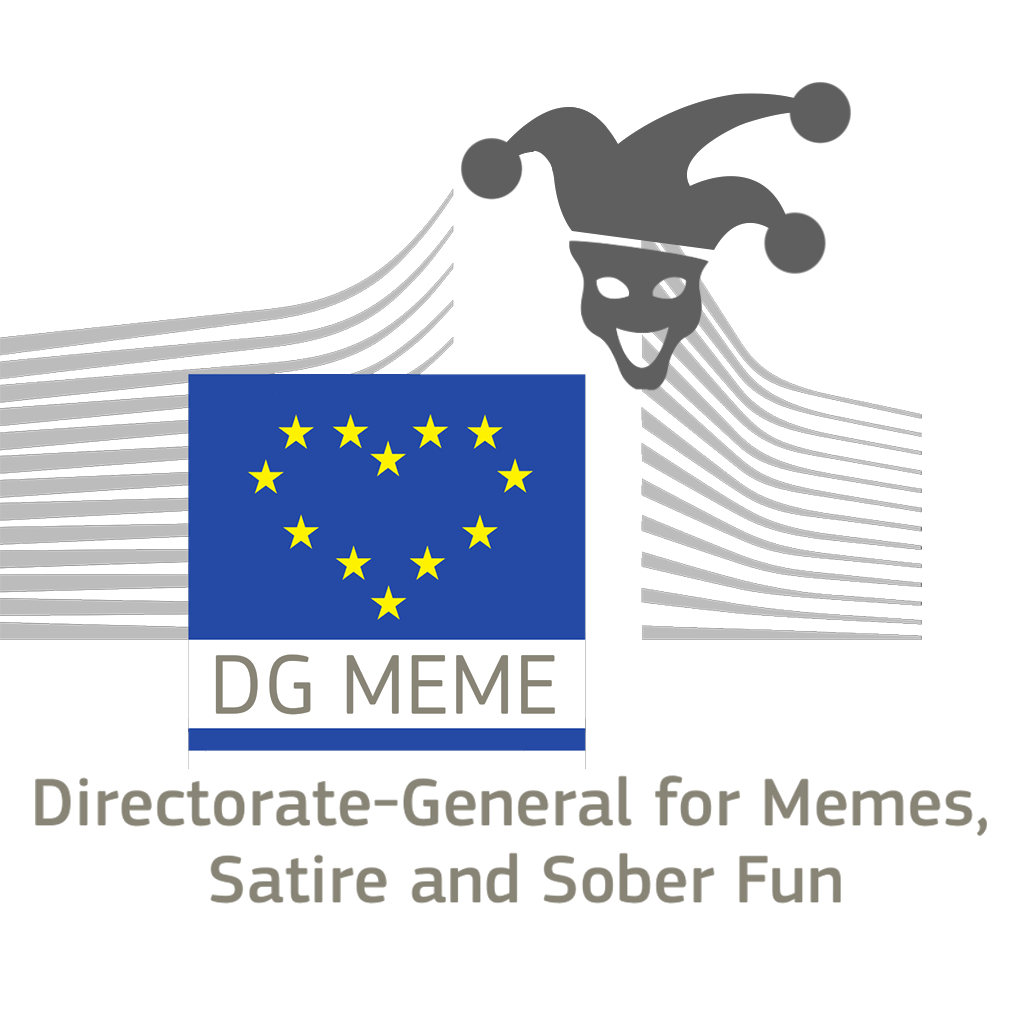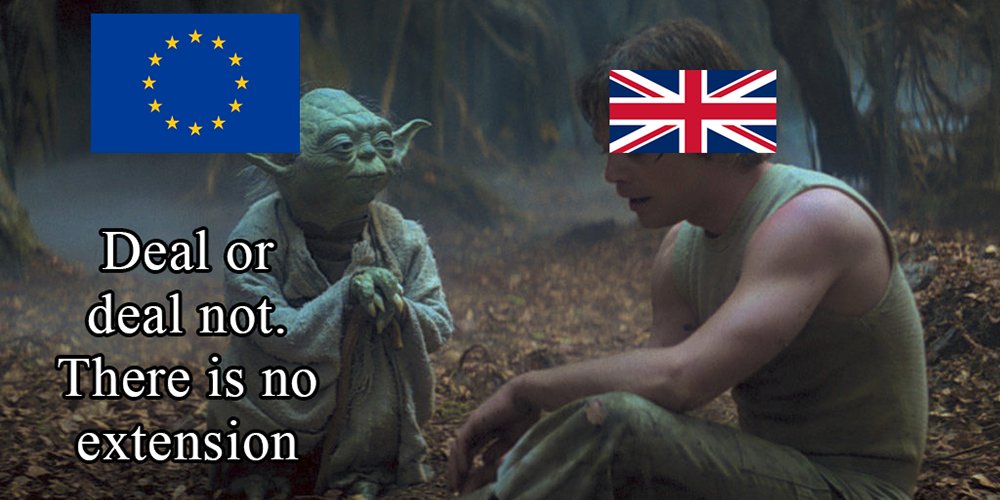
Today we welcome Peter Wilding, solicitor, media director for the Conservatives, proud remainer, political commentator and, last but not the least, creator of the word BrexitBrexit, a portmanteau of "British" and "exit", is the withdrawal of the United Kingdom from the European Union. Following a UK-wide referendum in June 2016, in which 48% voted to remain in the EU and 52% had no idea what they were voting for, the British government formally announced the....
“BrexitBrexit, a portmanteau of "British" and "exit", is the withdrawal of the United Kingdom from the European Union. Following a UK-wide referendum in June 2016, in which 48% voted to remain in the EU and 52% had no idea what they were voting for, the British government formally announced the... means Brexit…” How does it feel to give the enemies their most important word?
You got to have a laugh about that, history plays tricks all the time. It was purely accidental that I came up with BrexitBrexit, a portmanteau of "British" and "exit", is the withdrawal of the United Kingdom from the European Union. Following a UK-wide referendum in June 2016, in which 48% voted to remain in the EU and 52% had no idea what they were voting for, the British government formally announced the..., adapting it from Grexit back in 2012. It is a bittersweet feeling to think that a prominent remainer coined the word which is the summary of the decline of his country. It’s funny and meaningful at the same time, because I devoted many years of my live to push the UK in Europe. And the battle was lost.
How did you start your political career?
I started as a member of the Conservative Party, when Margaret Thatcher came to power in 1979. I came from Liverpool, a city devastated by the end of the Empire, full of bomb craters and building sites, and I knew that the only future for the UK was to be a leading member of the European Union.
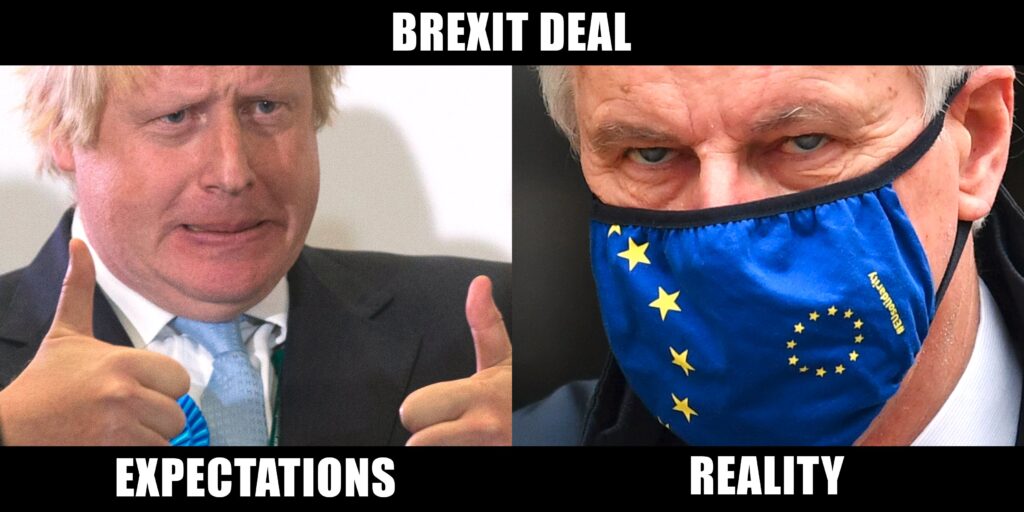
As Cameron’s media advisor you had the chance to follow the process that lead to the referendum. How did it started?
Promising a referendum to leave the EU gave Cameron lot of votes. So we had to run it and try our best to persuade people that remain was the right option. We decided to run an opinion poll, which gave interesting results: 65% of the British public wanted Britain to be a leading power in Europe, but 61% thought that UK had no friends, nor influence, nor success in Europe at all. Britain wanted to be a winner but thought it was a loser.
As head of Media Policy for the Conservatives I knew that the UK was leading the policy creation process, but nobody was aware of that.
Why this cognitive bias?
Only negative narrative reached my country, following the appointment of Boris Johnson as correspondent for Daily Telegraph in 1989 and for The Spectator in 1999. As head of Media Policy for the Conservatives I knew that the UK was leading the policy creation process, but nobody was aware of that. No politician would say that we were strong in the EU and no newspaper would cover that news, that’s why BrexitBrexit, a portmanteau of "British" and "exit", is the withdrawal of the United Kingdom from the European Union. Following a UK-wide referendum in June 2016, in which 48% voted to remain in the EU and 52% had no idea what they were voting for, the British government formally announced the... is a narcissistic victim syndrome ignited by charlatan nostalgists.
Talking about free press…
Don’t forget that back then a part of the Conservatives wanted to privatize the BBC (which every ten years needs to renew their broadcasting license). And the BBC managers decided to give more air time to Farage, to please the political establishment, and newspapers followed suit.
BrexitBrexit, a portmanteau of "British" and "exit", is the withdrawal of the United Kingdom from the European Union. Following a UK-wide referendum in June 2016, in which 48% voted to remain in the EU and 52% had no idea what they were voting for, the British government formally announced the... is a narcissistic victim syndrome ignited by charlatan nostalgists
On top of that, our most popular media outlets, that are strongly tied with America’s right wing, are owned by people that do not live in the UK, such as Rupert Murdoch (Sun and Times), the Barclay Brothers (Telegraph) and Jonathan Harmsworth (Daily Mail). Those individuals, who won’t be affected by BrexitBrexit, a portmanteau of "British" and "exit", is the withdrawal of the United Kingdom from the European Union. Following a UK-wide referendum in June 2016, in which 48% voted to remain in the EU and 52% had no idea what they were voting for, the British government formally announced the... at all, were pursuing deregulation and tax reduction, especially after Blair’s rule. The Conservative party welcomed their financial support and that’s how the leave movement won.
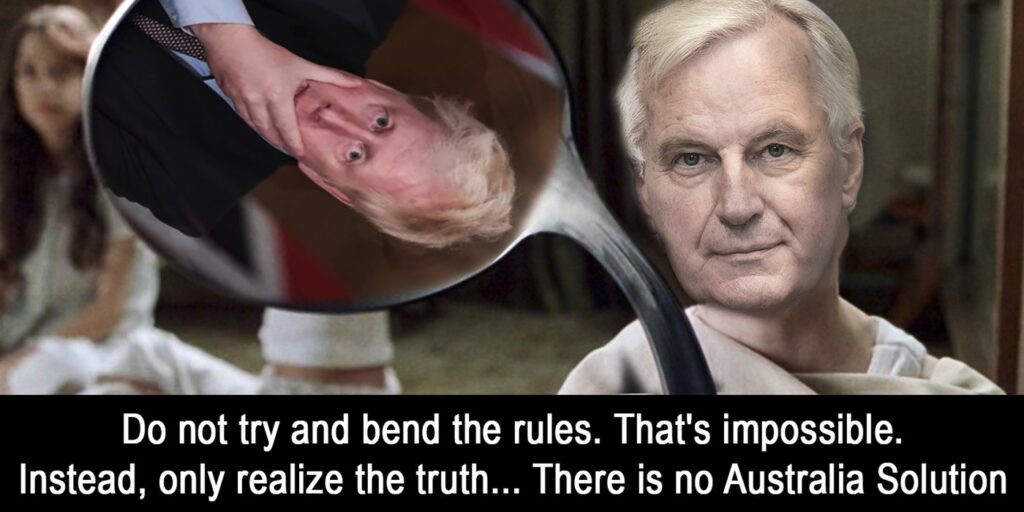
At least, considering the size and power of the leave campaign, they won by a small margin. The remain campaign, mostly focused on the negative effects of BrexitBrexit, a portmanteau of "British" and "exit", is the withdrawal of the United Kingdom from the European Union. Following a UK-wide referendum in June 2016, in which 48% voted to remain in the EU and 52% had no idea what they were voting for, the British government formally announced the... on the UK economy, was also not very effective. Was it a deliberate choice?
We had two options for the Remain campaign: the one I proposed, and around which the Centre for British Influence Through Europe revolved, was to focus on the leading role that the UK had in Europe, underlying our brilliant success in fulfilling Thatcher’s dream in terms of foreign policy.
Leavers had all the money to invest in modern campaign and technology with one emotional message
David Cameron had a different vision: he managed (quite unexpectedly) to win the general elections of 2016 through fear and economics, he managed to win the Scottish referendum through fear and economics and he thought he could have avoided BrexitBrexit, a portmanteau of "British" and "exit", is the withdrawal of the United Kingdom from the European Union. Following a UK-wide referendum in June 2016, in which 48% voted to remain in the EU and 52% had no idea what they were voting for, the British government formally announced the... through fear and economics. Too bad leavers had all the money to invest in modern campaign and technology with one emotional message.

So Cameron would not listen?
Not one bit. It could have been the perfect opportunity for him to go down in history as a modern Churchill: winning the Scottish referendum, restoring economy and uniting Europe. But he was too afraid of the Daily Mail and turned down the opportunity to lead a real change.
It is possible that historians of the future will identify Cameron as the real villain of the whole BrexitBrexit, a portmanteau of "British" and "exit", is the withdrawal of the United Kingdom from the European Union. Following a UK-wide referendum in June 2016, in which 48% voted to remain in the EU and 52% had no idea what they were voting for, the British government formally announced the... period: from Farage you can expect anything, but from a revered liberal conservative leader… What is your guess, how will scholars think of BrexitBrexit, a portmanteau of "British" and "exit", is the withdrawal of the United Kingdom from the European Union. Following a UK-wide referendum in June 2016, in which 48% voted to remain in the EU and 52% had no idea what they were voting for, the British government formally announced the... in thirty years?
BrexitBrexit, a portmanteau of "British" and "exit", is the withdrawal of the United Kingdom from the European Union. Following a UK-wide referendum in June 2016, in which 48% voted to remain in the EU and 52% had no idea what they were voting for, the British government formally announced the... will be remembered as the final UK collapse, the chronicle of a death foretold. I never saw a president that was ruling a country which was a leading, powerful geopolitical player destroying it through such utter mismanaged and naivety.
What about the opposition? Their stand on BrexitBrexit, a portmanteau of "British" and "exit", is the withdrawal of the United Kingdom from the European Union. Following a UK-wide referendum in June 2016, in which 48% voted to remain in the EU and 52% had no idea what they were voting for, the British government formally announced the... is still unclear in these days…
In 2016 the Labour elected Jeremy Corbyn, who personally supported BrexitBrexit, a portmanteau of "British" and "exit", is the withdrawal of the United Kingdom from the European Union. Following a UK-wide referendum in June 2016, in which 48% voted to remain in the EU and 52% had no idea what they were voting for, the British government formally announced the... and voted against the Membership referendum in 1975. Their party was fragmented from the beginning, they could not help at all.
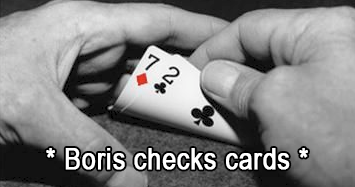
On the other hand, among the lies and the fake news, the leave campaign focused on a simple message: “The European Union does not work, that is why we should leave it”. What do UK people expect the EU to do for them?
It is hard to say, overall Brits are not very cosmopolitan, foreign voices are generally not welcome and they rarely mind what is happening in other countries. They still look at Europe as a WWII prison, with spitfires and tanks…
Brits still look at Europe as a WWII prison, with spitfires and tanks…
Margaritis Schinas, the former EU’s Chief Spokesperson and now commissioner, declared: “If we had participated, remainers would have lost 40-60”, a clear assessment of the communication skills of the European Union. Do you agree with that?
Depends on the strategy they would have adopted. If it had been the usual waste of money on leaflets, papers and facts, with Juncker doing a speech exhorting the benefits of being in the European Union, it would have been a disaster.
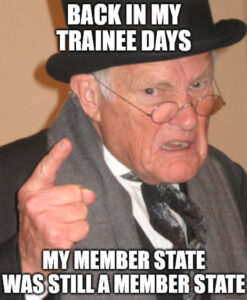
For what it’s worth, many EU functionaries criticized the EU’s decision of not taking part in the campaign and even Juncker recognized it was a mistake. What would have been the right strategy?
First of all, the EU should try to define their audience better: who are these citizens they are so desperately trying to reach? Secondly, they should acknowledge that the other side has more money. Because of that, they should finance grass roots campaign organizations, without being afraid of not controlling them, and keeping the big names out. Think of what happened when Cameron invited Obama to say that BrexitBrexit, a portmanteau of "British" and "exit", is the withdrawal of the United Kingdom from the European Union. Following a UK-wide referendum in June 2016, in which 48% voted to remain in the EU and 52% had no idea what they were voting for, the British government formally announced the... was bad for any trade agreement. It didn’t help at all.
Peter, you have more than 25 years experience in government relations and European Law, can you help us understanding the legal background of BrexitBrexit, a portmanteau of "British" and "exit", is the withdrawal of the United Kingdom from the European Union. Following a UK-wide referendum in June 2016, in which 48% voted to remain in the EU and 52% had no idea what they were voting for, the British government formally announced the...? How could a consultative referendum, won by a thin majority, trigger the end of the UK membership in the European Union?
It’s all about power: over the last ten years a new elite emerged, based in the city of London; hedge funds, equity, people that made lots of money using modern technologies. They are only driven by one thing: enjoying their money without being taxed. And that’s why we are without a deal a few days from the end of the transition period: they don’t want Britain to abide to any European rules.
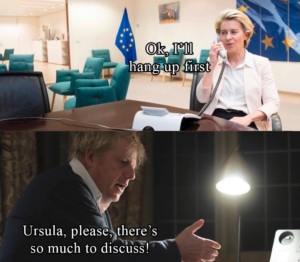
Nobody defending the manufacturing and services?
The old Tories, who owned or were involved with the traditional business you mention, played a key role in the referendum to join the EU in 1975. But they were absent in 2016, because their companies were no longer British, they became international. And shareholders don’t want their companies to be involved in politics.
I went talking to those Tories saying: “You have to support the remain campaign, otherwise you’ll also be damaged”. And their answer was: “If things collapse, we will just move our assets to other countries”.
That explains why Theresa May turned from remainer to leaver in a matter of seconds and so did many members of the Conservatives. Were they trying to make the best out of a bad situation or did they just chose power over their nation’s future?
The second. If you asked them why they were pro-European, it was mainly because they were satisfied with the status quo and they expected the referendum to be won. But afterwards, when the pro-Brexit minority in the party took control, they were fast in changing their mind.
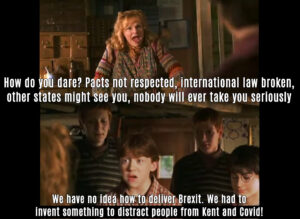
Following the endless debates in Westminster, continental observers discovered lots of folklore related to the UK’s legislative process: the House of Lords has hereditary peerage, the House of Commons needs the ceremonial mace to lawfully operate, the PM can lie to the Queen, and, last but not the least, the UK has no written constitution… Do you reckon these traditions, surely worth of respect and admiration for what they represent, might contribute in keeping the country hanging on its glorious past?
British democracy is a 19th Century creation, and it worked in a period where parties and the country were divided in the old concepts of free market economics and socialism. That form of democracy has been kept in place because the main parties have their interest in that. There is a lot of soft corruption involving the peerage in the House of Lords, which means that Westminster does not represent the people at all and.
The Queen is going to die soon and Scotland might leave in May to rejoin the European Union. What you have is a political class that blinds people with their traditions and an elite with no interest in keeping the country together.
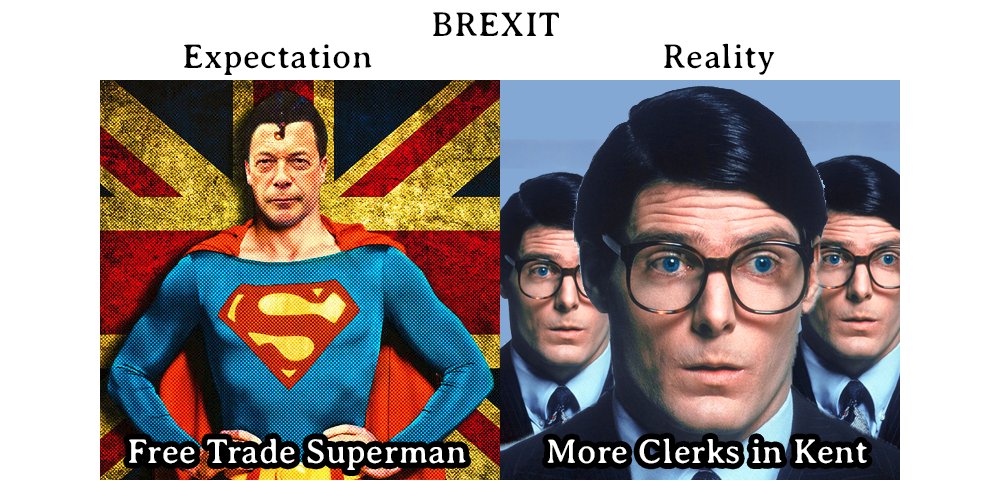
How can the UK people think that their alone can have a say in our globalized world?
The English consider themselves patriots, and, in a way, I am also like that. UK economy was dead in 1978 but the victory in the Falkland War in 1982, which was framed as a fight for Freedom, Democracy and Rule of Law, helped the UK recovering from the financial crisis. Ten years later Reagan and Thatcher could end, successfully, the Cold War and this was powerful stuff that gave us the idea of being something special.
The British have no idea about geopolitics, the most recent proof is that the UK Army was defeated in Iraq and Afghanistan. That affected the people’s morale and they looked back with nostalgia to a better time. Nobody was able to explain what the UK still meant in the world. Nobody has a clue, most politicians don’t have a clue, my parents don’t have a clue.
The military defeat in Iraq and Afghanistan affected the people’s morale and they looked back with nostalgia to a better time. Nobody was able to explain what the UK still meant in the world.
This seems to be proven by the fact that the day after the BrexitBrexit, a portmanteau of "British" and "exit", is the withdrawal of the United Kingdom from the European Union. Following a UK-wide referendum in June 2016, in which 48% voted to remain in the EU and 52% had no idea what they were voting for, the British government formally announced the... referendum “What is the EU?” and “What is BrexitBrexit, a portmanteau of "British" and "exit", is the withdrawal of the United Kingdom from the European Union. Following a UK-wide referendum in June 2016, in which 48% voted to remain in the EU and 52% had no idea what they were voting for, the British government formally announced the...?” were very popular searches in the UK. It is of course the voters right not to inform themselves, and yet elections should not boil down to the decision of the uninformed majority… Did BrexitBrexit, a portmanteau of "British" and "exit", is the withdrawal of the United Kingdom from the European Union. Following a UK-wide referendum in June 2016, in which 48% voted to remain in the EU and 52% had no idea what they were voting for, the British government formally announced the... shook your faith in the modern day implementation of democracy?
Democracy needs two things to work properly: people must be allowed to participate from the bottom, but they need to be presented with a clear vision from the top. And the elite must accept that they have enemies and fight them: the EU is circled in a ring of fire with Brexit’s Britain, Trumps’ America, or what is left after the elections and Putin’s Russia…
Practicing a technocratic and visionless management of the crisis, in the typical Merkel’s fashion, can be dangerous in the long run and it contributes to the people’s estrangement from politics. Motivation and ideals are an important aspect of politics, that is often forgot.
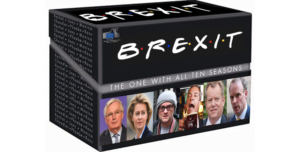
The One with the Joke that Went Horribly Bad
The One with the Morning After
The One with the many Useless Parliament Votes
The One Without Bercow’s Ordeeeer
The One Where Michel and Theresa Take a Break
The One with the useless Labo(u)r
The One with the Butt-PM
The One with the Breach of International Law
The Last (?) One
The One Where UK Finds Out it was Better Before
Despite of the EU propaganda we are also very far from solving national egoisms and vested interests…
True. Back in the days Sarkozy reached out to Tony Blair, but Merkel stopped him, because she has to protect her feud. Now she reached out to Macron in a similar fashion, because an agreement suits the German interests.
So you don’t see any truly European leader?
The last effective European politician was Jaques Delors, he did nearly impossible things from UK perspective: he united UK right wing with the Single Market and he change the Labour Party to pro-European party.
We talked about the past, let’s wrap up with a prediction about the future: how many years until the UK starts a rejoin procedure?
It will be quite quick, I think. Let’s not forget that our departure was positive for Europe, with us still inside there would have been no Recovery Fund and no push for stronger cohesion. The future will see three blocks, the United States, the European Union and China with a battle on who wins the key alliances, namely India and Russia.
For the UK this will be a ruthless lecture and there will be an existential crisis throughout the country. We’ll see who win 2024 general election, they will have a policy to abandon a failed conservative strategy and try to join European Economic Area and the Custom Union.
